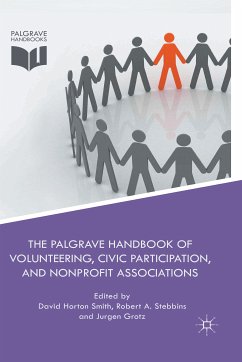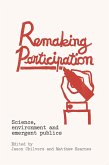Written by over 200 leading experts from over seventy countries, this handbook provides a comprehensive, state-of-the-art overview of the latest theory and research on volunteering, civic participation and nonprofit membership associations. The first handbook on the subject to be truly multinational and interdisciplinary in its authorship, it represents a major milestone for the discipline. Each chapter follows a rigorous theoretical structure examining definitions, historical background, key analytical issues, usable knowledge, and future trends and required research. The nine parts of the handbook cover the historical and conceptual background of the discipline; special types of volunteering; the major activity areas of volunteering and associations; influences on volunteering and association participation; the internal structures of associations; the internal processes of associations; the external environments of associations; the scope and impacts of volunteering and associations; and conclusions and future prospects. This handbook provides an essential reference work for third-sector research and practice, including a valuable glossary of terms defining over eighty key concepts. Sponsored by the International Council of Voluntarism, Civil Society, and Social Economy Researcher Associations (ICSERA; www.icsera.org), it will appeal to scholars, policymakers and practitioners, and helps to define the emergent academic discipline of voluntaristics.
Dieser Download kann aus rechtlichen Gründen nur mit Rechnungsadresse in A, B, BG, CY, CZ, D, DK, EW, E, FIN, F, GR, HR, H, IRL, I, LT, L, LR, M, NL, PL, P, R, S, SLO, SK ausgeliefert werden.









